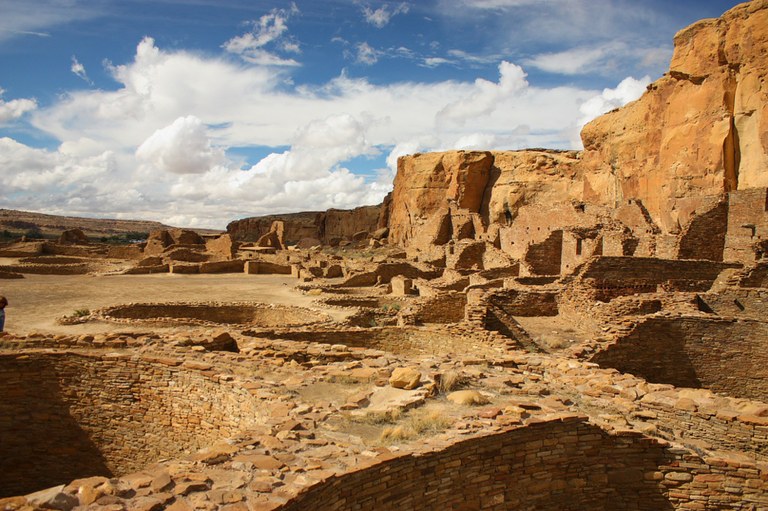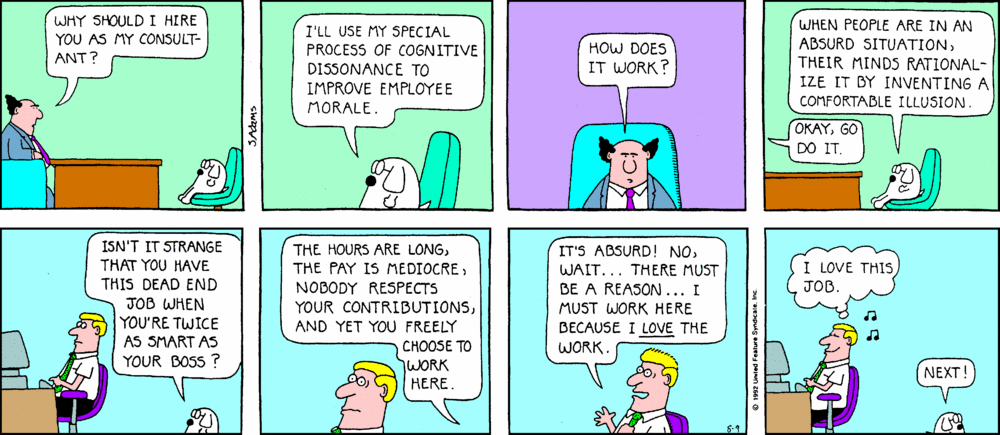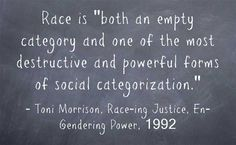|
Class Biz
Step 1: Watch the CNN report on the Supreme Court case, Morse v. Frederick (2002) aka “Bong Hits For Jesus” Step 2: Answer the two following questions in order to determine the morally correct court ruling on this case from John Stuart Mill’s utilitarian perspective AND Jeremy Bentham’s utilitarian perspective?
Discuss the starter Discussion of the "life boat scenario" from the beginning of Ch. 2 Remember the "lifeboat" scenario from last night's reading? Yeah, sure you do. It's the one about the English sailors adrift at sea, at the brink of starvation?
Powerpoint Lecture time!
Time to work on the study group discussion questions for Ch. 2
Last 10 minutes: Class Closing Announcements and Exit Ticket
Exit Ticket
Starter: Trolley Car Dilemma (see slides 27-30)
Lecture (all the slides UP TO "Utilitarianism")
Understanding Ch. 1 of Justice by Michael Sandel: Justice Philosophy Study Group Discussion Guide (See Documents page on my DP)
Context on Utilitarianism (powerpoint slides #31-35) If time: Begin to read ch 2 Assign: Ch. 2 [pages 31-35, 37-44, 48-51] (16 pages total) due MONDAY Be of Service Coordination
*Portfolio Update time for my afternoon pod (see yesterday's blog for the guidelines) TRANSITION! "Crash Course in Justice" video review
Let's re-watch Crash Course on justice video (10 minutes) Debrief/Share out (10 minutes)
Reporter: Report out on your group’s discussion (10 minutes) LECTURE TIME!
If time, begin reading Chapter 1 Morning Pod Schedule for today:
Afternoon Pod Schedule for today
Justice Monologues Prep
Justice Monologues! (20-25 minutes)
Justice Monologues Reactions (10-15 minutes) At the bottom of your written Justice Monologue, write "REACTION" and take the next 10-15 minutes to just WRITE based on what you are thinking/feeling right now after listening to every one's monologues. Think about how your own ideas have evolved, what ideas have been challenged, what ideas need more thought on your part to fully understand or be able to defend, or what ideas were further reinforced and why... Portfolio Update-- Share out from last week!
Portfolio Update Requirements for This Week
Portfolio Update Time Starter: What notes did you take on the "1619" podcast yesterday?
Finish last 7 minutes of "1619" Podcast CLASS BIZ 1. Update on homework (See bottom of today's blog or Homework page) 2. Potential Field Trip Announcement:
Why Chaco? (From https://www.sanjuancitizens.org/chaco) Chaco Canyon is a UNESCO World Heritage Site, National Historical Park, and Dark Sky Park in the heart of the San Juan Basin. From 850 to 1250 A.D. the Chacoan peoples constructed many great houses in Chaco Canyon. The center core of the Canyon receives the most attention, but “Greater Chaco” encompasses a vast treasure of over 230 outlier settlements. The massive structures, connected by a web of ancient roads, are internationally recognized architectural and engineering wonders, the purpose and use of which remain a mystery. In addition to vast cultural resources, Chaco Canyon is home to many living native communities. Over two dozen tribes still hold the region sacred and many people use the cultural sites for ceremonies and celebrations. For decades the Bureau of Land Management (BLM) has prioritized oil and gas development in the area. This development has been reckless, badly planned, egged on by corrupt officials, and enabled by shady laws. Local communities, cultural resources, and the environment have been pushed aside in the interest of oil and gas. Time to work on Justice Monologues #1
TRANSITION! Context on The Shanta Foundation Tomorrow, from 10:30-11:15, we'll be in the Commons with the entire grade to hear from people from Myanmar who run the Shanta Foundation. This is an awesome opportunity to learn about one type of approach to solving poverty, which many people believe is an issue of injustice on a global scale. There are many different approaches to combating poverty, from government loans, to military interventions, to handing out donations. Think about whether you think the Shanta Foundation has an effective approach.
Shanta Foundation's GUIDING PRINCIPLES Hop on to the above linked website, which describes Shanta Foundation's core values (or guiding principles). Read each one, and then discuss with your neighbor how those principles reflect the organization's views of Justice. How does each principle relate to justice or showcase how the organization thinks about justice? ***************************************** Introduction to our next course book: Justice: What's the Right Thing to Do? by Harvard Professor, Michael Sandel and we'll start reading it aloud in class. *Note: 1-5 means pages 1 THROUGH page 5 (including page 5) but start and end reading at obvious section titles By FRIDAY, you're required to only read these pages, but I recommend reading the entire chapter! (22 pages total)
REVIEW HOMEWORK FOR THE WEEK (and pass out books)
Starter Can you think of an example in your own life where there is a disconnection between something you believe and an action you do? Or a contradiction in two thoughts/behaviors? Example: I know that riding my bike to school is both better for the environment and my own mental and physical well-being, but I very rarely do it. Today's Goals
What is Cognitive Dissonance?
Moral of the story: How do we ignore certain things that make us uncomfortable, morally? What is the connection to the Justice project? Think about the ways in which your beliefs around justice line up with your actions in the world. As we study various philosophies, to what extent do you agree with them? To what extent do their ideas clash with your own actions? To what extent does that clash influence HOW you respond to the philosophies? Do you disregard them simply because it makes you uncomfortable or challenges your own ways of being??? Listen to "1619" Podcast (Follow along with the transcript if you'd like) Four hundred years ago, a ship carrying enslaved Africans arrived in the English colony of Virginia. A new audio series from The New York Times examines the long shadow of that fateful moment. This podcast is a great review of an important period of American history and helps lay the foundation for us to think about the founding ideals of our country and the ways in which people have fought to uphold those ideals. As you listen, try to answer these questions (WRITE THEM DOWN)
HOMEWORK FOR THE WEEK! Let's review it! See the "Homework" tab! Justice Monologue Series #1 Overview and Work Time The purpose of these monologue series is multi-fold:
Starter
Spirit Read: Skim back through last night's reading and pick a line that stood out to you. Also, use this time to jot down questions/confusions/lines you didn't quite understand Mini-lesson: Structure of Logical Arguments
Structure of a logical argument
A logical argument is a claim defined with reasons composed of a group of premises supporting a conclusion. It rests of the validity of each premise logically leading to a conclusion.
Two Ways An Argument can Fail
Discussion Questions linked here! Make sure you’re tracking each premise and overall conclusion to help you with Tuesday’s Justice Monologues and today's final reaction. NOTE: The goal of discussion should be to do our BEST and DEEPEST thinking. The point is that we are collectively creating an environment where we can determine if the authors' arguments are good. Are they based on logical reasoning? So, we're on a team. This isn't about defending your own viewpoint and proving yourself to be right. Debates like that do not work to challenge premises and think more deeply because all you are trying to do is win your debate. So rather, the goal of the discussion is to better understand the best arguments on both sides. The goal is GREATER understanding NOT to be RIGHT. The goal is DEEPER understanding and so when you’re disagreeing to someone, you don’t snap at them, you say, wow, that really doesn’t initially make sense to me, can you explain that more? Or here is why it isn’t squaring with me…. Background info (page 60) Liu Xiaobo Liu Xiaobo was a Chinese writer, literary critic, human rights activist, philosopher and Nobel Peace Prize laureate who called for political reforms and was involved in campaigns to end communist one-party rule in China. Some referred to him as "China's Nelson Mandela." Aung San Suu Kyi Aung San Suu Kyi is a Burmese politician, diplomat, author, and Nobel Peace Prize laureate. She is the leader of the National League for Democracy and the first and incumbent State Counsellor, a position akin to a prime minister. Criticized recently for human rights violations. Read more here Starter: Turn and talk
Be of Service roll-out and selection
Portfolio Update Time!! Now is the time to start reflecting on the areas of the portfolio you feel are relevant to the work you've done in Humanities thus far this semester. STEP 1: Get organized
Are there any other ideas for better ways to organize the folder? What are you guys envisioning working for you?? STEP 2: Reflect and Document
TRANSITION TO SENIOR PROJECT BRAINSTORMING Share out: What is one idea you have for senior project? Senior Project Research and Brainstorm Phase 1
WRAP UP ZINN DISCUSSION!
Whole Class Discussion
TRANSITION!
Mini-lesson on Metacognition called "How to get the most out of studying in college" (6 minute video from cognitive biologist and professor) In the past, my students have expressed an interest in learning more study skills to be successful now and in the future in college/beyond. So, I'm delivering on that feedback and building on our work on metacognition. As you listen to the video, please jot down ideas to the following question:
Class Biz
Project Tune the ABCDEG portfolio document There are the four parts of the above linked document on separate pieces of paper around the room. Please take your time to write down on sticky notes questions you have, things you like, ideas/suggestions you have, concerns. Portfolio Clarification time
STARTER: Silently read this Justice project overview document
Social Change Model of Leadership and Core Values
Silent reading time for "Law and Justice" (50 minutes) As you're reading, I'll pass a poster board around. Please write your 5 core values on the board so we can have a class list!!
Small Group Discussion: Discussion questions for Howard Zinn
Happy Monday my favorite students! (Seriously, I love the class of 2020!)
I am out today, which is why you see, standing before you, an adult man, perhaps with facial hair, named Mike. Please read the entirety of this DP carefully and then get to work. Materials Needed:
SOCIAL CHANGE MODEL OF LEADERSHIP and CORE VALUES: Small Group Discussion
Discussion Questions- Social Change Model of Leadership reading
Assign and begin reading Howard Zinn's “Law and Justice” (~27 pages total, REQUIRED pages include 397-414, 419-427, 434-435)
Time to begin reading! Feel free to go out in the hallway to read aloud to each other but just make sure you have it read before class tomorrow. Starter: Get Meta!
Let's Review Kohlberg and learn about Carol Gilligan
Justice Project Overview Let's read about this project! Popcorn style! (fun fact: dog's paws smell like popcorn) Introducing the Social Change Model of Leadership: Read pages 17-21 from Leadership for a Better World and be ready to answer the discussion questions below. Context: Throughout this semester, we will be developing leadership skills that will help you both with your senior project work, and future collaborative efforts. As we’re asking you to think about your senior project in terms of impact, in some way, that means being an agent of social change. A model of leadership that fits best with both our Justice Project and these goals of senior project is called “The Social Change Model of Leadership” and was developed by a group of researchers and professors to assist college students with bringing about change at all sorts of levels. We’re going to read a bit about this framework and then focus on ONE part of this framework: Consciousness of Self. Discussion Questions
Consciousness of Self
Core Values Exercise Why?? Not only is knowing your values important to leadership as we’ve discussed so far today, but it will be important throughout our Justice project. As we explore various philosophies of Justice, it is critical that you understand what you value, what you believe, and how those beliefs translate to your views on what is justice, and how to bring about justice for specific issues. So, we’ll do an activity to identify your core values. Next week, we’ll read one text that argues that Justice is rooted in the value of compassion. I wonder how your views of justice relate to your own values? Instructions: Make a copy of the “Core Values Exercise” document linked above and go to town! When you're done reading: Think/Write about where you developed those values. From whom? From what experiences? etc…. Share Out: In groups of 3-4
Starter: Review “Born Good? Babies Unlock the Origins of Morality” What do you remember learning about in the video we watched at the end of class yesterday about Yale's Baby Lab. Discuss: What does the research in that 60 minutes video suggest about the formation of morality in humans? Specifically, these values:
WATCH: Short Youtube Video on Monkeys and Fairness (2 minutes)
Heinz dilemma (press pause after one minute)
We’re not actually going to share out our responses. However, you should definitely think about your choice and how it may or may not relate to what we learn about later in class regarding Kohlber’s Theory of Moral Development. Short Lecture: Intro to Moral Psychology (10 minutes) Read about Kohlberg's Theory of Moral Development Small Groups- (6 in total): Discuss Kohlberg
Apply Your Knowledge: If someone came up to you with answers to this year’s SAT or ACT exam, would you take a peek?
IF TIME.....(doubtful!) We'll do the rest of what we have up here! Otherwise, this will be for tomorrow. Revisit “What is Justice?” Freewrite What did you write about in Tuesday's starter? Share it out! John Greene crash course in justice (10 minute video) Which definition of justice resonates most with you?
Take notes on:
Independent time to capture notes on John Greene’s video (10 minutes) Debrief/Share out (20 minutes)
Report out! Reporter, report out on your group’s discussion and go over questions as a class Justice Project Overview Let's read about this project! Starter: Last minute college essay biz'ness: 20 minutes!
Last Airbender Ninja!!!!! Transition to Senior Theses! Based on what you read last night, how prepared do you think you are as a writer to tackle your senior thesis? What areas are you confident in? Where will you need to grow as a writer this semester to find success in the spring with your thesis? If you need help check out my basic Writing Rubric for ideas of skills you’ll be assessed on this semester in your writing or think about what you struggled with while writing your college essay.. Senior Thesis Examples Get into a group of 3-4 students. Have the thesis you read yesterday pulled up in front of you. Discuss the following:
TRANSITION TO JUSTICE PROJECT IF TIME!!! Pair-Share:
60 Minutes: “Born Good? Babies Unlock the Origins of Morality” Summary: Are We Born good? Babies help unlock the origins of morality. Can infants tell right from wrong? And if so, how would you know? Come to Yale's baby lab. Lesley Stahl reports. Discuss: What does the research in that 60 minutes video suggest about the formation of morality in humans? Specifically, these values:
Starter: Justice!!!!
Class Biz
College Essay Final Touches and Conferences with Ashley If you need more time to complete your final revisions, now is the time! You can revise, refine, proofread, conference with me, or do whatever else you need to do to finish up your essay. WHEN YOU ARE FINISHED, do the following: FIRST: Email me a colored photo of you for the display board so I can print them on the color printer. SECOND: Complete this College Essay Boot Camp Feedback Survey THIRD: Exhibit Your Work (by no later than THURSDAY, start of class!)
Begin tonight's homework Read one of the example Senior Theses linked on my Senior Project page and found below:
These are two stand-outs from class of 2019
These are all the finalists from the class of 2018- the best thesis award went to Claire Leffler, but it was a close call!
|
Ashley CarruthHumanities teacher at Animas High School Archives
May 2021
Categories |



 RSS Feed
RSS Feed
